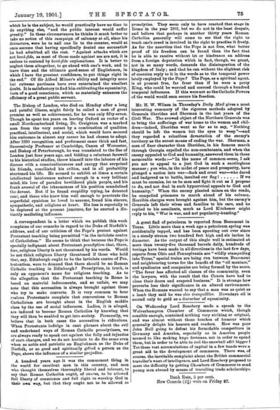A hundred years ago it was the commonest thing in
the world for excellent men in this country, and men who thought themselves thoroughly liberal and tolerant, to say that Roman Catholics ought, of course, to be allowed full liberty of conscience and full right to worship God in their own way, but that they ought not to be allowed to proselytise. They seem only to have reached that stage in Rome in the year 1901, but we do not in the least despair, and believe that perhaps in another thirty years Roman Catholics generally will come to see that the right to teach one's creed is involved in the right to practise it freely. As for the assertion that the Pope is not free, what better proof of his freedom can be found than the fact that he is able to receive without let or hindrance an address from a foreign deputation which in fact, though, we grant, not in so many words, demands the disintegration of the kingdom of Italy ; and that he can without the slightest risk of coercion reply to it in the words as to the temporal power lately employed by the Pope ? The Pope, as a spiritual agent, is at present free, far freer than if he were a petty King, who could be worried and coerced through a hundred temporal influences. If this were not so the Catholic Powers of the world would soon secure his freedom.






































 Previous page
Previous page